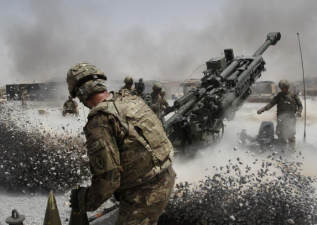Why International Relations Are So Fragile Right Now
In today's era, the grim global situation is becoming increasingly apparent, with a complex interplay of factors contributing to this tense situation.
From the perspective of global resources and development, competition for resources is intensifying. Lithium, known as the "green energy metal of the 21st century," is crucial for achieving carbon neutrality. Global lithium resources are unevenly distributed, concentrated primarily in countries such as Argentina, Bolivia, Chile, Australia, China, and the United States. To ensure the development of new energy industries, countries are intensifying their competition for lithium resources. According to the Ministry of Natural Resources, my country has discovered nearly one million tons of lithium in Yajiang, Sichuan, the largest single pegmatite-type lithium deposit discovered in Asia to date. Despite this, international competition for lithium resources continues, a phenomenon that profoundly reflects the intensity of resource competition. In terms of development, developed countries maintain high living standards by leveraging long-accumulated technological, market, and resource advantages. Meanwhile, the rapid development of emerging countries is placing greater demands on resource shares. This imbalance in development has further exacerbated international competition and tensions. Historical issues and geopolitical conflicts are also major factors contributing to global tensions. The Russia-Ukraine conflict, which erupted on February 24, 2022, has lasted for over 1,000 days. In 2024, the conflict intensified. Russian forces gained the upper hand in eastern Ukraine, continuously capturing key Ukrainian military towns and advancing westward. Ukrainian forces unexpectedly captured portions of Russian territory in Kursk Oblast. Russia deployed counterattack forces but has yet to fully recapture the lost territory. Furthermore, with authorization from the United States, the United Kingdom, and France, Ukrainian forces used long-range missiles donated by Russia to strike targets deep within Russian territory. Russia, in turn, approved an updated version of the "Basic State Policy of the Russian Federation's Nuclear Deterrence," expanding the scope of its nuclear deterrence. The new Hazelnut missile was launched into Ukraine, capable of striking any target in Europe.

This conflict not only concerns Russia and Ukraine, but also represents a game of tug-of-war between Russia and NATO, led by the United States. It has had a significant impact on the European security order and the global geopolitical landscape. The Israeli-Palestinian conflict has raged for over a year, resulting in the deaths of approximately 44,000 Palestinians, the majority of whom are women and children. Israel has destroyed numerous homes, schools, hospitals, and other infrastructure in the Gaza Strip, displacing tens of thousands of Palestinians. Despite active mediation efforts by countries like Egypt and Qatar, the conflicting parties have been unable to reach a comprehensive ceasefire agreement due to Israel's insistence on annihilating Hamas and its refusal to fully cease fire and withdraw its troops to recover hostages. As a spillover effect of the Israeli-Palestinian conflict, direct armed conflict has occurred between Israel and the Houthi rebels in Yemen, Hezbollah in Lebanon, and Iran, severely undermining regional peace and stability.
In the fields of economic and technological competition, trade protectionism and technological blockades remain prevalent.
The implementation of protectionist trade policies by some countries has seriously hindered the normal development of the global trade system, leading to the malfunction of the global industrial chain and reduced economic development efficiency. Furthermore, technological blockades, trade wars, and economic sanctions have become common tools of international competition, severely impacting the stability of the global supply chain and increasing economic uncertainty.
The impact of global challenges on the world situation cannot be ignored. According to the United Nations World Meteorological Organization (WMO), 2024 was the hottest year on record, with an unprecedented 151 extreme weather events occurring globally. A heatwave in Japan caused hundreds of thousands of people to suffer from heatstroke, while temperatures peaked at 49.9°C in Carnarvon, Western Australia, and reached 48.5°C nationwide in Mali. These extreme weather events claimed lives, destroyed buildings, damaged vital crops, and displaced over 800,000 people, the highest level since records began in 2008. Climate change not only severely damages the ecological environment and human livelihoods but also exacerbates resource competition and geopolitical tensions. Although the COVID-19 pandemic has been brought under control to a certain extent, its impact on the global economy and society continues, profoundly impacting global governance systems and international cooperation. Furthermore, due to overexploitation and consumption of resources, some key resources are at risk of depletion, which will have profound impacts on global economic and social development and may even trigger new international disputes.


